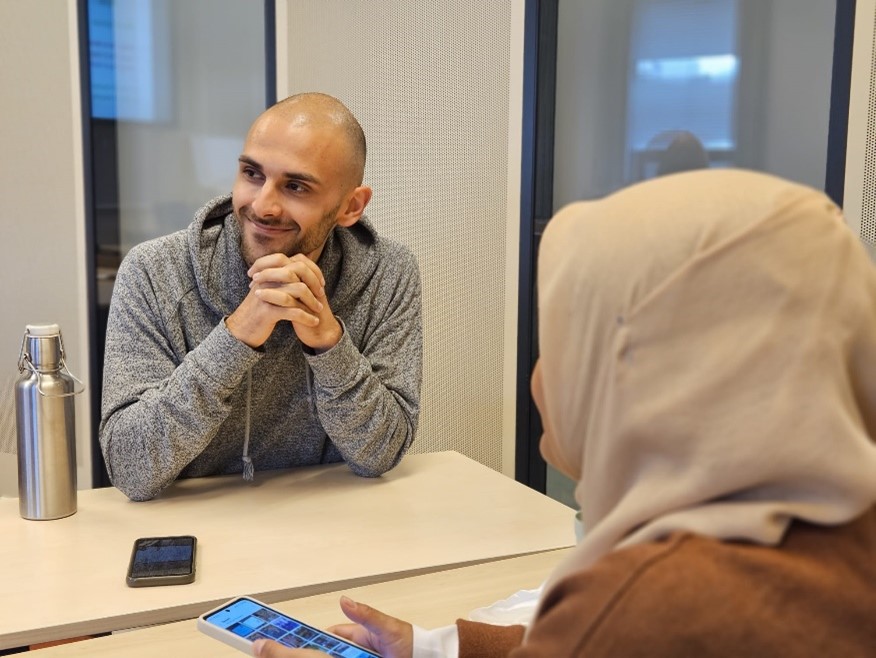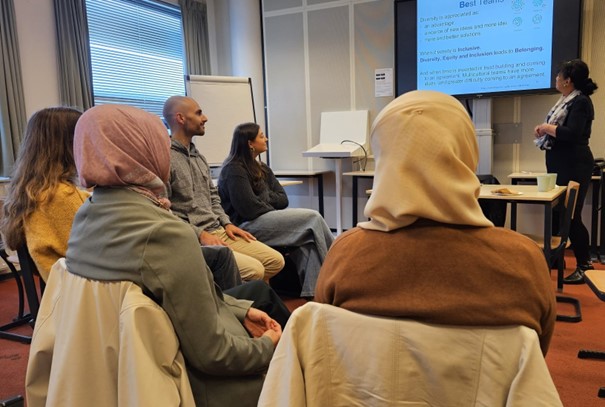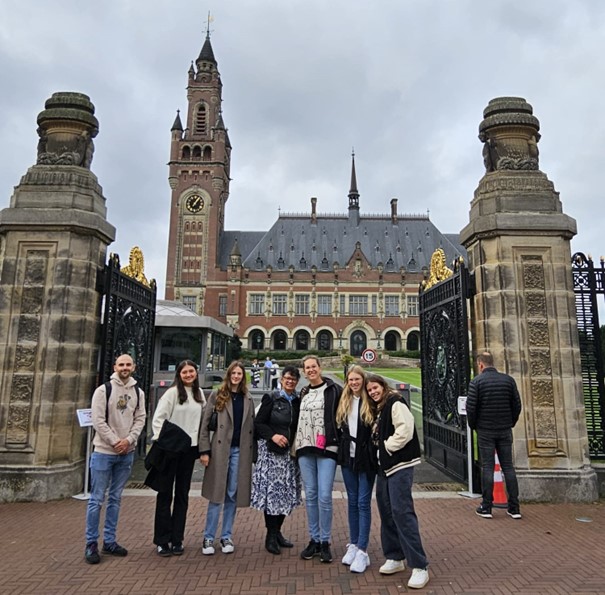Internationalise your Classroom
For whom
Are you a student who wants to delve deeper into internationalization in the classroom through both practical and theoretical exploration? Then you are warmly welcome to study with us. In today's classrooms, diversity is the norm. Pupils come from various cultural backgrounds, bringing a rich tapestry of perspectives and experiences. However, this diversity also presents challenges. Educators must guide pupils in navigating this world and dealing with those challenges. To effectively teach in such an environment, it's crucial for educators to understand themselves and how they present themselves in the classroom.
By studying in Utrecht, you will experience firsthand what it's like to live in a different culture, preparing you to foster an inclusive and globally aware classroom. In this minor, you will explore how to integrate internationalization and global citizenship into your teaching through theoretical models and practical lessons. You'll learn how to collaborate with international partners and implement diverse teaching methods. Additionally, you will undertake an internship at an international or bilingual school, either in primary or secondary education. This hands-on experience will allow you to apply what you've learned during the courses in a real-world setting, ensuring you are well-prepared to meet the needs of all your pupils.
This minor is open to teacher training students from outside the Netherlands as well as students from teacher training programs at Hogeschool Utrecht or other Dutch institutions.

Content
During this course, you will engage in practical, theoretical, and research-based activities. You will learn to examine the influence of culture on the thinking and behavior of people, including teachers and pupils. You will compare educational systems within Europe, gaining insights into different didactic approaches. Additionally, you will explore how to incorporate internationalization, globalization, and peace education into your classroom.
After acquiring this knowledge and these skills in the first part of the minor, you will undertake an internship at an international or bilingual school in the second part. This can be in either primary or secondary education. During this internship, you will apply what you have learned in the first period. Besides the internship days, you will meet with fellow students for intervision sessions to learn from and with each other. Furthermore, you will conduct research on internationalization within your internship school and develop a practical, implementable product.
In addition to the course content, we will also meet for enjoyable social activities such as an international lunch, making stroopwafels, and a trip to the Peace Palace in The Hague.

€ 200,- (traveling costs)
Courses
The programme takes place during one semester and contains the following courses:
Teacher in Europe: 5EC
Toolbox for Internationalisation: 5EC
Global Citizenship and Diversity: 5EC
School-based Research Project: 5EC
School Practice: 10EC
Leerdoelen
After completing this minor, you are able to:
- Demonstrate your view on global citizenship in education in order to raise awareness of it within a school and promote integration into the curriculum;
- Define culture in its broadest sense, and describe how cultures shape us, and how culture changes;
- Recognize, identify and appreciate diversity amongst students and use diversity within multicultural and international classroom as opportunities;
- Identify and critically discuss key-concepts in European educational materials, such as identity, heritage, citizenship and culture;
- Define internationalization at home and abroad and explain its relevance within education;
- Conduct school-based research and collect data and make recommendations for the school where the research was conducted.
Ingangseisen
You are expected to have attained English CEFR level B2. The minor is not suitable for part-time students.
Literatuur
The following literature will be discussed during the minor. You will receive a definite reading list before the start of the minor.
- C. Nunez, R. Nunez Mahdi, L. Popma (2021). Intercultural Sensitivity. Van Gorcum
- Walliman, R. (2011). Research methods. The basics. London: Routledge
- Sales, A., Traver, J.A. & Garcia, R. (2011). Action Research as a School-Based Strategy in Intercultural Professional Development for Teachers. Teaching and Teacher Education, 27, 911-919
- Dulmen, J. van (2018). School Practice Assignments. 2016-17 (online)
Rooster
Classes are scheduled on Monday, Tuesday, Wednesday and Thursday in Block A and Wednesdays in Block B. The internship in Block B is organized on the other four days, after consulting your school mentor. Due to the tight schedule and the internship the program is not suitable for parttime students.
With the exception of the first teaching period of the academic year (starting September), the lesson and test schedules are always posted on Mijn Rooster four weeks before the start of each teaching period. The schedule for the first teaching period of the academic year can be found on the site three weeks before the start. The most up-to-date schedule is always visible on Mijn Rooster.
At HU, full-time education may be scheduled between 08:30 and 19:00.
Toetsing
Teacher in Europe - Exam and Assignments
Toolbox for Internationalisation - Portfolio
Global Citizenship and Diversity - Exam and Assignment
School-based Research Project - Research Report and Presentation
School Practice - Report

Aanvullende informatie
Signed learning agreements can be uploaded up to and including 4 July 2025 in Osiris Registration, see the instructions on the learning agreement or check our site. Learning agreements that are received after 4 July will not be processed.
Please note:
Learning Agreements will be considered in order of entry in Osiris Application (first come, first serve). A submitted learning agreement will not entitle you to a spot within a minor unless the following is the case:
* The minor is not yet full: each minor has a maximum number of places per period.
* The student has submitted the learning agreement in full (including his/her own details and signature and the stamp of the examination board).
* HU has signed and stamped the learning agreement.